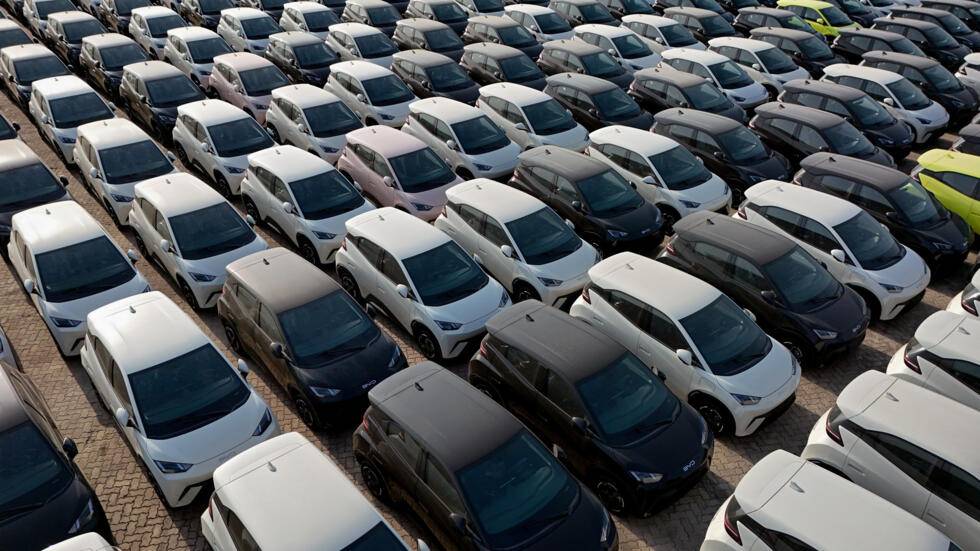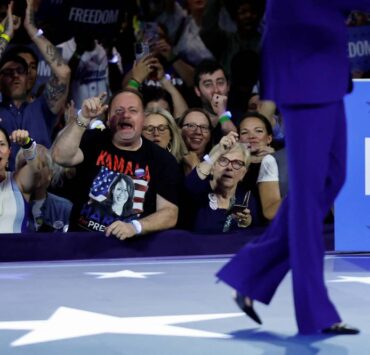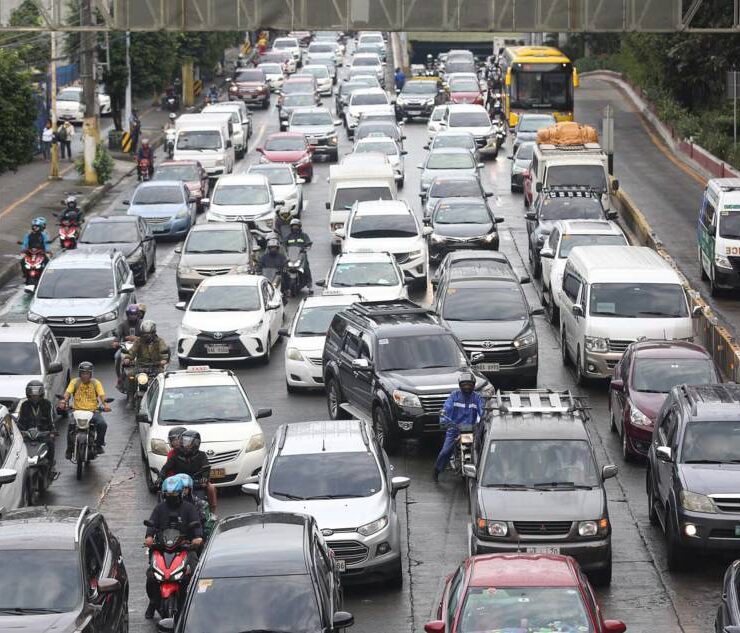China auto body says EU draft on tariffs for Chinese EVs brings ‘enormous risks’

HONG KONG and BRUSSELS, Belgium — The China Association of Automobile Manufacturers (CAAM) said it firmly opposes a revised draft from the European Union on punitive tariffs for Chinese made electric vehicles, Chinese state broadcaster CCTV reported on Wednesday.
The decision on the tariffs brings “enormous risks and uncertainty” for China’s operations and investment in the EU, the association said, according to the CCTV report.
The European Commission published on Tuesday the draft findings of its high-profile investigation into alleged subsidies for imports of Chinese-made electric vehicles, which included some revisions to proposed punitive tariffs.
The Commission, which sets EU trade policy, said it still believed Chinese EV production has benefited from extensive subsidies and proposed duties of up to 36.3 percent on auto companies. In July it set a maximum initial planned duty of 37.6 percent.
The high tariffs have “damaged the confidence of Chinese enterprises operating in and investing in Europe,” CAAM told CCTV.
It will have a “serious adverse impact on driving the development of the EU automotive industry, increasing local employment opportunities in the EU and achieving green and sustainable development,” CAAM said.
Meanwhile, the Commission announced plans Tuesday to impose an extra nine-percent tariff on Tesla’s China-made electric cars, much lower than what Chinese firms face unless Beijing compromises in a trade row.
Brussels last month slapped EVs imported from China with hefty provisional tariffs — on top of current duties of 10 percent — after an anti-subsidy probe found they were unfairly undermining European rivals.
On Tuesday the commission released a draft plan making the tariffs definitive, at slightly revised rates, subject to input from interested parties by end August, and to approval by EU member states by end October at the latest.
China’s commerce ministry reiterated that it “firmly opposes” the tariffs, while voicing hope Brussels would work with Beijing “in a rational and pragmatic manner to avoid the escalation of trade frictions”.
A European Commission official said the EU executive remained “open” to resolving the trade dispute without resorting to tariffs — but that “it’s very much up to China to come up with alternatives.”
Beijing has so far filed an appeal against the measures with the World Trade Organization — which Brussels has acknowledged while voicing confidence the tariffs are WTO-compatible.
The tariff rates faced by major Chinese manufacturers would be 17 percent for market leader BYD, tweaked down from 17.4 in the preliminary proposal; 19.3 percent for Geely, down from 19.9; and 36.3 percent for SAIC, down from 37.6.
Other producers in China that cooperated with Brussels’ probe will face a tariff of 21.3 percent — revised slightly upwards from 20.8 — while those that did not would be subject to the maximum 36.3 percent duty.
Musk’s Tesla — which manufactures Model 3 and Model Y cars in China — had asked Brussels for its own duty rate, set at nine percent after the Commission deemed that it received lower Chinese subsidies than domestic manufacturers.
The bulk of the benefits taken into consideration involve batteries being supplied to Tesla for less than market value, as well as land use provided below market value and various Chinese grants for exporting producers.
AFP is one of the world's three major news agencies, and the only European one. Its mission is to provide rapid, comprehensive, impartial and verified coverage of the news and issues that shape our daily lives.




















